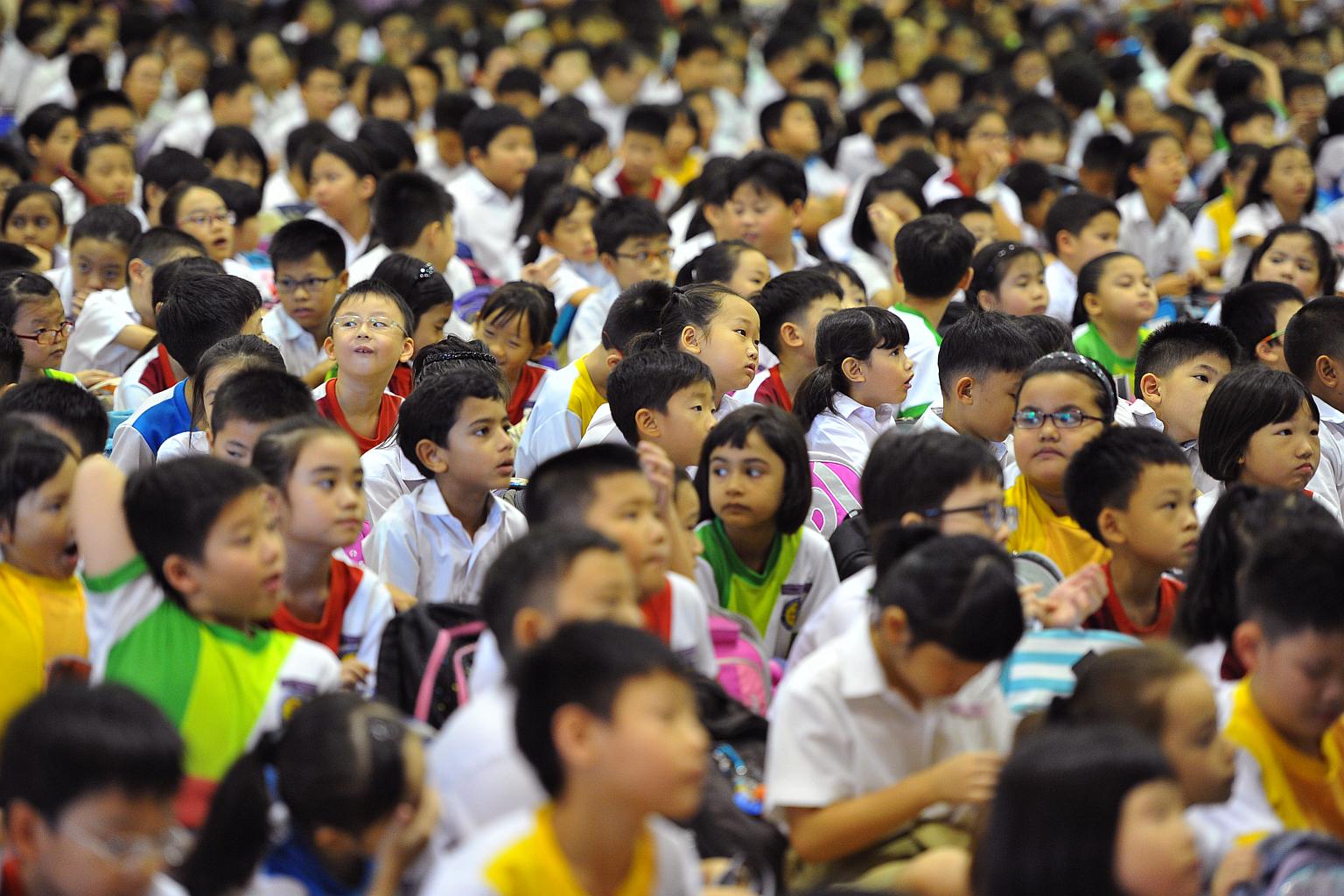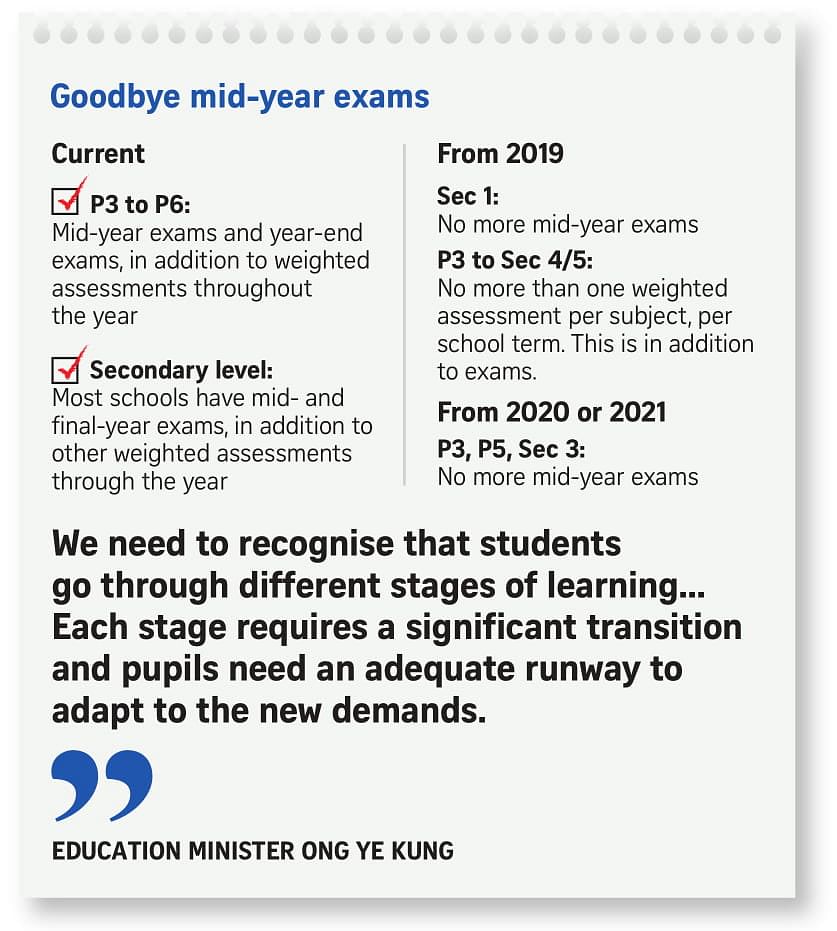Fewer exams for students, less emphasis on grades
Mid-year exams scrapped for some levels; changes to report book to rein in competition
Sign up now: Get tips on how to help your child succeed

MOE said cutting the mid-year examinations will provide students with more time to adjust during "key transition" years.
PHOTO: ST FILE
Mid-year examinations for Primary 3 and 5 pupils, as well as for Secondary 1 and 3 students, will be scrapped over the next three years.
As part of the Ministry of Education's (MOE) latest set of efforts to move away from a narrow focus on grades and help children discover the joy of learning, the first two years of primary school will also be test-free from next year.
And to stress the message that learning is not a competition, report books will no longer include the class and level rankings at both primary and secondary levels.
Even aggregate scores, used for post O-level postings, will not be reflected at the lower secondary level to avoid preoccupation with grades.
These changes were described by Education Minister Ong Ye Kung as another step towards improving the balance between the joy of learning and education standards.
"We are at a strong position of rigour and can afford to unwind a bit without undermining the performance outcomes," he said at a press conference yesterday, pointing to how Singapore students already rate highly in international rankings.
The latest changes will also give teachers more space to explore new ways of making learning enjoyable and lasting. He said: "On the ground, teachers are on a high-speed train... rushing, assessments and preparing the students for exams... I think it is time to take a pause."
MOE said cutting the mid-year examinations will provide students with more time to adjust during "key transition" years, when they have to study new subjects and deal with higher content rigour. It will also free up about three weeks of curriculum time every two years.
In a speech to school heads earlier this week when he briefed them on the changes, Mr Ong urged educators to use the time well.
For instance, a pupil can be spoon-fed the formula on how to calculate area. "It can be done in a short time," he said. "But in an inquiry approach, we will ask children, how do you find out the area of the field, and have them discuss and brainstorm."
This may take more time, but pupils are "more likely to remember and enjoy the lesson", he said.
Mr Ong said that moves over the last few years, from not naming the top Primary School Leaving Examination scorers to the reform of the PSLE scoring system which kicks in in 2021, are all part of a new phase in Singapore's education system, which he termed "Learn for Life".
"Learn for Life is a value, an attitude and a skill that our students need to possess, and it is fundamental in ensuring that education remains an uplifting force in society."
Some parents were concerned over the changes, especially how it will be harder to gauge their children's performance against their peers' as report books will no longer show rankings and mean scores.
"It is important we know where our children stand," said Madam Grace Chua, 37. The business development manager has a son in Primary 3 and a daughter turning two.
For the shift to succeed, Mr Ong said, MOE needs to "bring the most important stakeholder - parents - on board" and convince them that the changes do not compromise on academic standards.
Schools also need to engage parents differently, he added.
Instead of telling parents that their children have to get their homework done or comparing results with those of their classmates, the question that matters, said Mr Ong, is: "What makes your child's eyes light up?"

SEE TOP OF THE NEWS:
READ MORE Sandra Davie's analysis: Parents can help rekindle joy of learning


